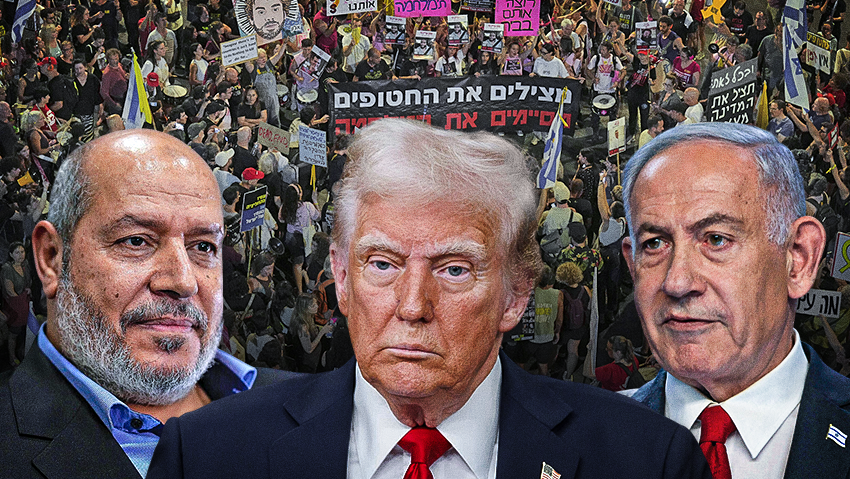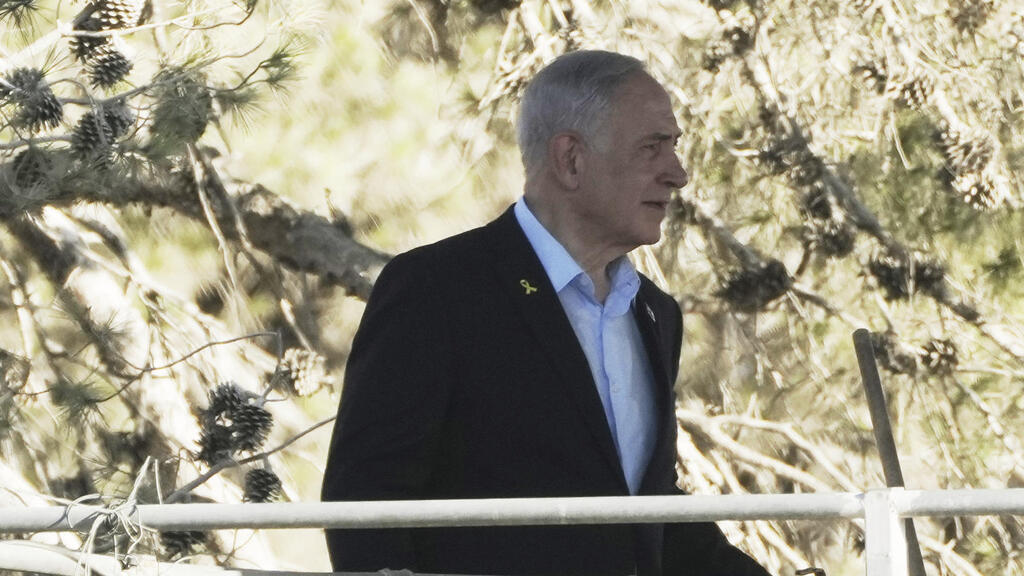2 View gallery


(Photo: AP/ Ariel Schalit, AP/ Khalil Hamra, Reuters/ Ronen Zvulun, Joshua Sukoff/ Shutterstock)
The officials said Israel is preparing for the possibility of “proximity talks” with Hamas—indirect negotiations facilitated by mediators. They believe that under intense pressure from Trump on Qatar, and from Qatar onto Hamas, such talks could yield results, even if not immediately.
Meanwhile, the London-based newspaper Asharq Al-Awsat reported that Hamas is signaling to mediators that it may accept the updated deal as early as Thursday night, or by Friday at the latest.
As negotiations advance, families of 35 hostages sent an urgent letter to Netanyahu demanding a comprehensive agreement. “Anything short of that would be a grave failure and a historic tragedy,” they wrote. “The era of partial and selective deals is over.”
The letter, published by the Hostages and Missing Families Forum following Netanyahu’s first visit to Kibbutz Nir Oz since the October 7 Hamas massacre, was also sent to Minister Ron Dermer, head of Israel’s negotiating team, ahead of the prime minister’s trip to Washington.
“Israel stands at a historic crossroads,” the families wrote. “The bold operation in Iran and recent battlefield successes have placed Israel in a position of strength across every front. After nearly two years of a grueling war, the opportunity must be seized with wisdom and determination.”
Though the families come from diverse backgrounds and hold varying opinions, they said they are united in one demand: “Prime Minister, reach a comprehensive deal that ensures the return of the last hostage and an end to the war. The time for partial deals, cruel categorizations and blood-based selection is over.”
“There is broad agreement among the hostages’ families and the Israeli public: We need a full deal with a clear timeline and a guarantee that all hostages, every last one, will be freed, and that the fighting will end. That is the right, moral and necessary thing to do,” the letter continued. “Anything less would be a disaster. It’s time for Israel to breathe again, to heal and rebuild. Only a full return of the hostages will allow that process to begin. This is the key to Israeli victory. Behind us stands the overwhelming majority of the Israeli people.”
In contrast, six coalition Knesset members, including some from Netanyahu’s Likud party, sent their letter to Netanyahu and cabinet ministers demanding the complete defeat of Hamas and full Israeli control over Gaza. They warned that any other outcome would pose an “existential threat to the State of Israel” and insisted they would not support any path that falls short of total victory. “This is our red line,” they wrote.
At the same time, senior cabinet members who spoke privately with Netanyahu say the prime minister is “eager and determined to reach a deal—almost at any cost”—and sees the current diplomatic window as a rare, once-in-a-generation opportunity. In closed conversations, they say Netanyahu has spoken of “unprecedented, extraordinary diplomatic openings.” According to these sources, Netanyahu now seeks an end to the war—not a deal that will lead to renewed fighting in Gaza—and is considering broader agreements that could include Saudi Arabia, Syria and possibly other states.





